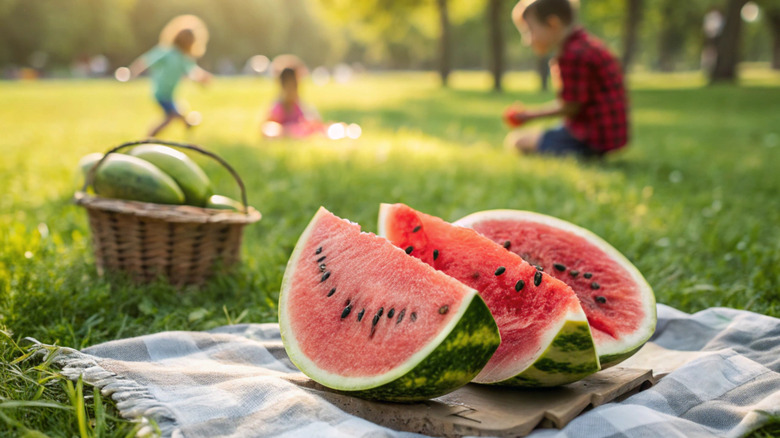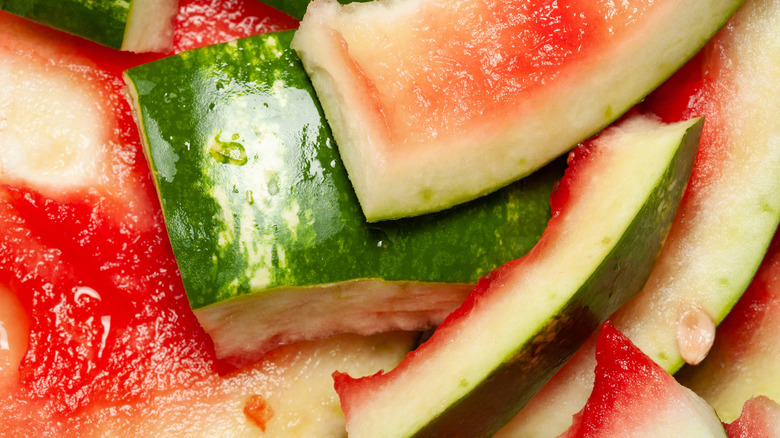The US City Where It's Sort Of Illegal To Eat Watermelon In Public Parks
Watermelon may be the fruit we associate most with summer picnics in the park. The sweet and juicy red fruit is cool and refreshing on a hot day, cut into big slices and eagerly grasped with both hands as you bite in. But there's one small U.S. city where it's technically illegal to enjoy that rite of summer. Eating watermelon in a public park is against the law in Beech Grove, Indiana — although good luck trying to find anyone who's been nabbed for it.
The ban on watermelon in any of the city of 15,000 residents' four public parks was put in place because the discarded rinds were causing a sticky mess in park garbage receptacles by poking holes in the plastic bag liners. (Instead of throwing watermelon rinds out, they can be turned into the perfect summer candy, or added to a classic side dish.) Station WRTV in nearby Indianapolis cited Beech Grove city board members as saying in 2017 that the law had existed for years, while noting city officials had trouble finding it in the books. However, like many other quirky laws across the country, some of which are old ordinances that were just never repealed, the ban isn't enforced.
While Indiana isn't the sunny U.S. state that produces the most watermelon, the fruit that Beech Grove bars from its parks is an important part of the economy in the state, which is the fifth-largest producer in the country. Some 70% of Indiana's watermelon is grown in Knox County, just over two hours from the city.
More strange laws about watermelon and other foods
Oddly enough, Beech Grove isn't the only place that legally restricts where you can eat watermelon. In Spartanburg, South Carolina, you can't eat the melon in the Magnolia Street Cemetery. The ban was put in place because train travelers making connections at a nearby station were buying watermelon from a seller and eating it in the cemetery while they waited. When they left, they would leave the rinds and seeds on the ground around the headstones. Not only was that bad on its own, but the ordinance was also intended to prevent watermelon vines from growing in the cemetery from the seeds.
Watermelon is illegal across the board in the Brazilian city of Rio Claro, where, according to the law, you're not supposed to eat or sell it. The 1894 ordinance was instituted when little was known about how yellow fever spread, and it was thought watermelon might be involved. We know now mosquitoes are responsible, not watermelon, but the law everyone ignores officially still exists, as it was never removed from the books.
There are weird laws about eating other foods across the U.S., too. For instance, it's illegal to eat peanuts in church in Boston, and given the noise and mess of unshelled peanuts, it's really not that unreasonable. New Jerseyans are legally barred from slurping soup in a public place, a pretty tough one to enforce. Then there's a law in Marion, Ohio, that doesn't seem like it would have too many violators: People are banned from eating donuts while walking backward.

